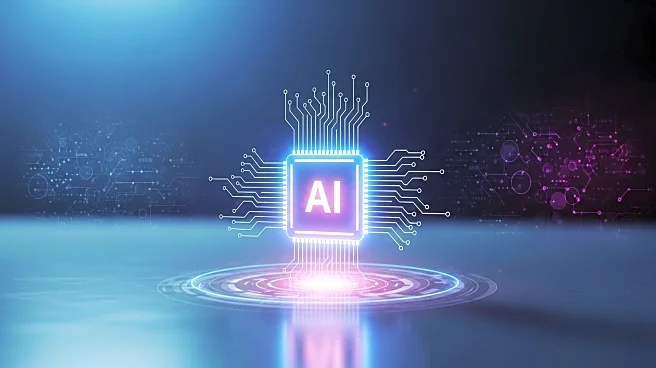What's Happening?
A U.S. District Court has given preliminary approval to a $1.5 billion settlement in the case of Bartz v. Anthropic, where the AI company Anthropic was accused of using copyrighted works without permission to train its models. The settlement involves compensation to authors and publishers for the unauthorized use of nearly half a million books. This case highlights ongoing concerns about AI companies using copyrighted material without licenses, raising questions about fair use and intellectual property rights. The settlement is seen as a significant step towards holding AI developers accountable for copyright infringement.
Why It's Important?
This settlement is a landmark decision in the realm of AI and copyright law, emphasizing the need for AI companies to respect intellectual property rights. It sets a precedent for future cases, potentially influencing how AI companies approach the use of copyrighted material. The decision is celebrated by rights holders and industry groups as a victory for authors and publishers, reinforcing the importance of licensing agreements. It also underscores the broader implications for the tech industry, which must navigate the legal complexities of using copyrighted content in AI training.
What's Next?
The settlement process will involve a claims procedure for affected authors and publishers to receive compensation. This case may prompt other AI companies to reassess their practices and seek proper licensing for copyrighted materials. Additionally, it could influence legislative and regulatory discussions on AI and copyright, potentially leading to clearer guidelines and policies. Stakeholders in the publishing and tech industries will likely continue to advocate for stronger protections and transparency in AI training practices.
Beyond the Headlines
The case raises ethical questions about the balance between technological innovation and the protection of creative works. It highlights the tension between AI development and the rights of content creators, prompting discussions about the future of copyright law in the digital age. The outcome may encourage more collaboration between tech companies and content creators to develop fair and sustainable models for using copyrighted material.









